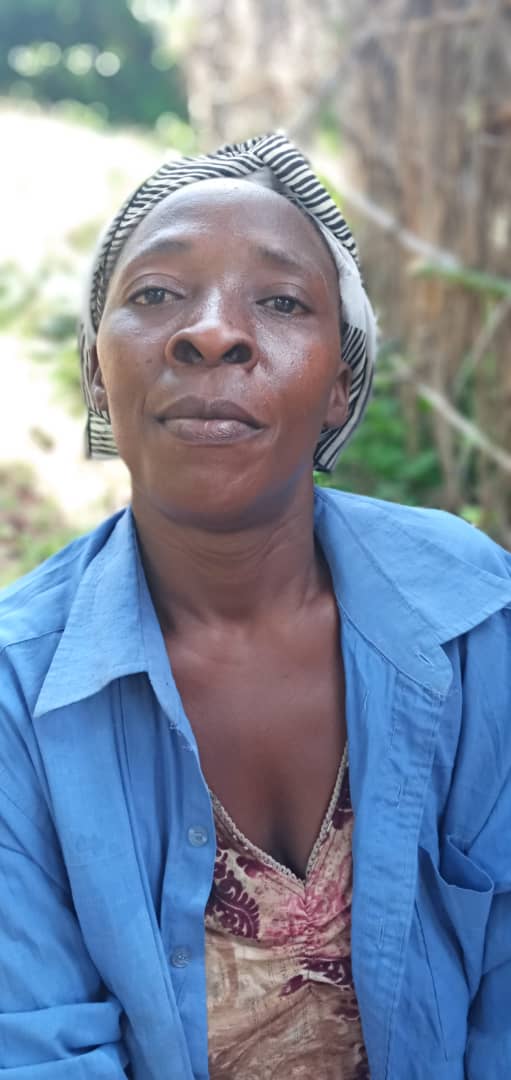Renia Similian lives with her younger son in Janlwi, a small neighborhood in northern Gwomòn. That son, René, is fifteen now. Her firstborn son, René’s older brother Odalin, is almost twenty. He left home a few months ago to move in with an aunt in Pòdpe, the major city on the coast, north of Gwomòn. He decided to go to try to make a living, and has begun to learn masonry through apprenticing at odd construction jobs.
For about fifteen years, since shortly after René was born, Renia has been a single mother. The children’s father moved out of the home and left supporting the family entirely to Renia. She would get by doing agricultural day-labor, earning 50 to 100 gourds, whatever the usual rate at the time was. As small as her earnings were, she would try to safe a little, building it up until she had something like 500 gourds. Then she could invest the money, buying pigeon peas or avocados — whatever was in season — and bringing them to the local market for sale. It enabled her to send her then-young boys into school, and to keep them fed.
She began to make progress in a surprising way. A neighbor of hers died, and the family was unable to find a woman to bathe the corpse. It was not an easy job. Disease had badly disfigured the woman, who had been her friend. But Renia girded up her courage, and she did the job. She split the 500 gourds she was paid with the man who helped her, and she played the lottery with the 250 gourds that remain to her. She won almost 900 gourds. She invested some in peppers and some in spinach, and sold both at the local market at a large profit. Eventually, she began selling okra, too. “That business saved my life. It sent my kids to school, and it helped me make friends.”
She spent most of her time in downtown Gwomòn, running her business. By then, her mother was living in her home, with Odalin and René.
Things took a bad turn in 2015, when her mother became ill. It soon became apparent that Renia would have to abandon her business to take care of her mom. “My mother was always apologizing for the problems she was causing, but I would tell that it didn’t matter. She had given me life and suffered a lot just to raise me.” By 2019, when the older woman passed away, Renia’s successful business was long gone. Once again, she was supporting herself and her sons with field work. “I would sometimes asks friends for money, but I wouldn’t ask just anyone. I had to know the person well.”
She chose goats and small commerce as her two activities. She received two goats, and one is now about two months pregnant. The other is still young, but it should be ready for breeding soon. She should be receiving her small commerce in the next days. She plans to start by trading in peanuts.
She is excited about her new latrine. Single women often finding it challenging and expensive to install a new latrine, mainly because they have to hire someone to dig the pit, which is a big and difficult job. People dig a pit about 15 feet down, but it needs to be narrow for it to hold the cement cover safely. Prices vary widely by region, but it is often, rightly, an expensive job.
Renia was unwilling to mess around. She dug it herself. “I didn’t have the money to pay someone, and i don’t like asking for favors.” So her latrine was installed quickly, almost as soon as the materials that Fonkoze contributed were available, and she walled it in and covered it right away after that.
She has another year in the CLM program before she graduates, and she’ll need the time. Not just because she needs time and coaching to build up her business activities to where they’ll need to be, but also to construct her vision. She doesn’t yet know what she wants to accomplish. She’s a lively, chatty woman, but when you ask her what her goal is, what she hopes to accomplish, she goes silent. After a long pause she says, “I don’t want to say just anything. I have to think about it first.”
